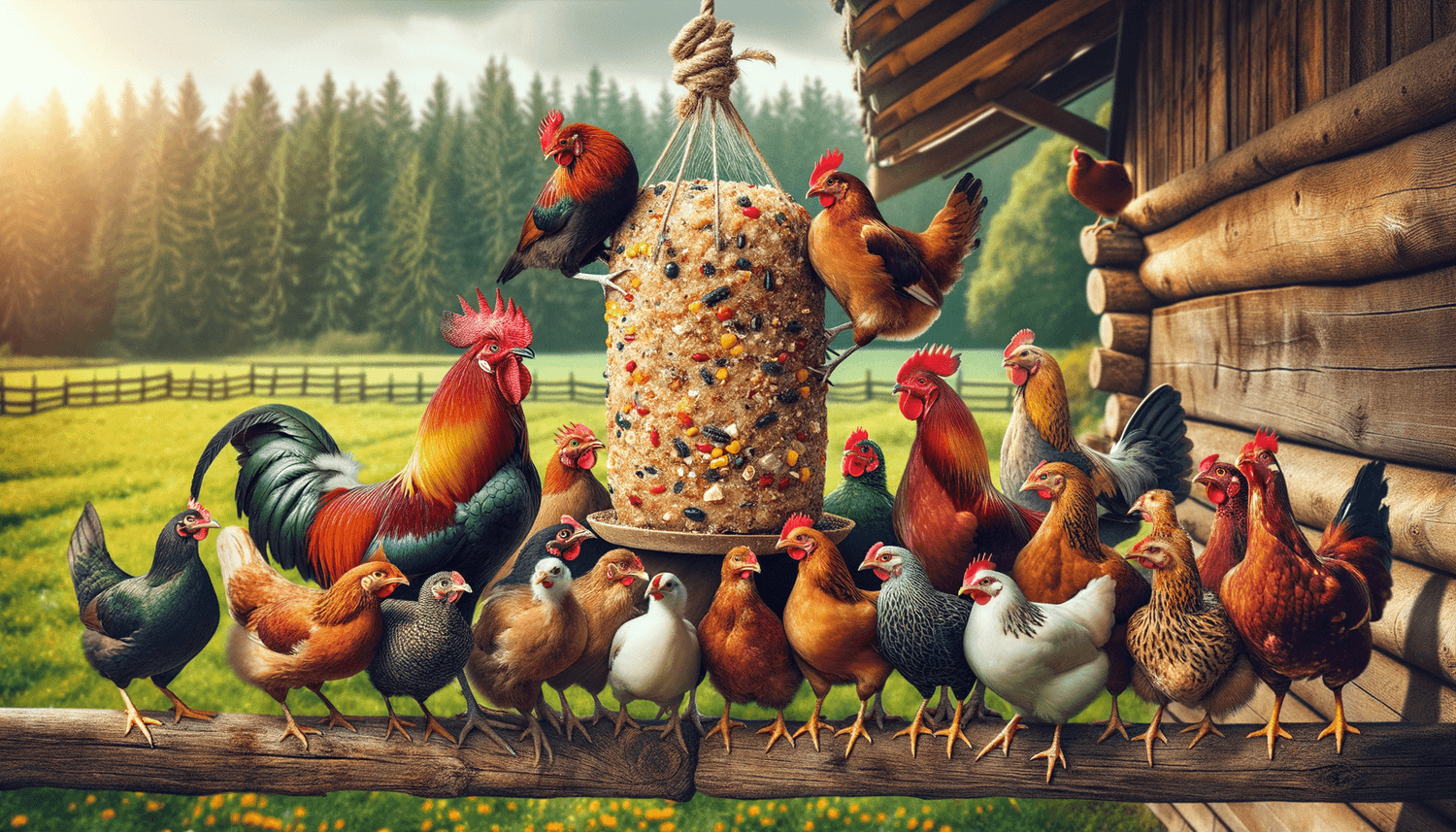Fellow poultry enthusiasts, gather round as we cluck our way to the truth about chickens and bird suet! If you’ve ever perched on your porch, gazing thoughtfully at your flock and wondering whether those feathered friends can feast on the same bird suet that delights their wild winged counterparts, wonder no more! In this entertaining blog, we’ll unpack if the tasty treat is right for your chooks, the importance of a balanced diet, nutritional perks or potential perils, and even dish out some helpful tips on how to prepare it for your curious flock.
Can chickens eat bird suet?
Yes, chickens can safely eat bird suet in moderation. Bird suet is made primarily of fat, seeds, and grains, which can provide a nutritious energy boost to your backyard flock. However, it is essential to balance suet consumption with a complete chicken feed to ensure your birds receive essential nutrients and maintain a healthy diet.
A balanced diet for happy, healthy chickens
Just like us humans, chickens need a balanced diet to thrive and maintain optimal health. By ensuring a well-rounded diet, you can support your chickens’ growth, egg production, and overall well-being. The cornerstone of a chicken’s diet should be a high-quality chicken feed, specifically formulated to provide all the necessary nutrients that our feathered friends require.
Chicken feed should make up around 80-90% of your chickens’ daily food intake, offering a balanced nutritious foundation for their dietary needs. The remaining tasty 10-20% can be reserved for treats like fruits and vegetables to keep them not only healthy but also entertained and engaged. Remember, moderation and variety are key for a happy flock and a balanced diet, so make sure to switch up those treats and find the perfect combination that keeps your chickens clucking with joy!
Nutritional value of bird suet for chickens.
Feeding bird suet to chickens offers some nutritional benefits, which can be a good addition to the chickens’ diet when provided in moderation. Bird suet is primarily composed of fats, seeds, and grains, which can prove to be an excellent source of energy, particularly during colder months when your flock has to expend energy to maintain body temperature. The fat content in suet is notably high in calories, helping to fuel your chickens and keep them active.
Moreover, bird suet often contains a variety of seeds and grains that contribute to the nutritional value, along with vitamins and minerals like calcium, phosphorus, and magnesium. These components play crucial roles in various functions such as maintaining bone health, ensuring better eggshell quality, nerve transmission, and muscle health. Additionally, some bird suet varieties may also include insect larvae, which are packed with protein, contributing positively to your chicken’s growth and egg production.
However, it’s essential to remember that bird suet cannot replace a high-quality chicken feed, as it lacks some specific nutrients essential to chickens. It should only be treated as a supplemental snack to complement their regular diet. So, while bird suet is not without nutritional value, it is important to use it sparingly and in conjunction with other reliable and varied sources of nutrients for your feathery friends.
Nutrition table of bird suet for chickens.
| Information | Description |
|---|---|
| Nutritional Value | High in calories and energy, contains vitamins, minerals and seeds, grains and insect larvae for protein |
| Suggested Serving Size | A small treat, making up a small part of the 10-20% treat allowance of their daily diet |
| Safe Feeding Practices | Feed in moderation, complementing a high-quality chicken feed |
| Preparation | No special preparation needed, can be fed as-is or broken into smaller pieces |
| Potential Risks | Overconsumption may lead to fat accumulation or nutrient imbalance |
| Hydration | Suet does not provide hydration; chickens should always have access to fresh water |
| Digestion | As long as it is fed in moderation, it should not cause any digestive issues |
| Seasonal Availability | Readily available all year, but especially good during colder months for extra energy |
| Other Benefits | Can help contribute energy during winter, and offer boredom-busting entertainment |
Choosing the Right Bird Suet for Chickens
When selecting bird suet for your flock, it’s important to consider the ingredients and make sure they’re safe and suitable for your backyard chickens. Some suet cakes may contain additives, artificial flavors, or inedible components, which may not be ideal for your feathery friends. Opt for suet that is natural, and avoid varieties with chemically treated seeds or any other harmful components.
Precautions while Feeding Bird Suet
While bird suet offers several benefits, it’s crucial to be cautious and follow some general guidelines while feeding it to your chickens. Always monitor your flock during their suet feasting sessions to ensure they aren’t overeating or choking on any large chunks. Additionally, be mindful of any potential allergies or digestion complications that may arise, keeping an eye on your flock’s overall health.
No Substitute for a Diversified Diet
As mentioned earlier, bird suet is an excellent supplementary treat for your flock. Still, it is not a replacement for a well-rounded diet that includes high-quality chicken feed, fruits, vegetables, and other nutritious snacks. Encourage foraging within a secure environment and provide a diverse range of poultry-safe treats that not only keep them healthy but also positively contribute to their mental and emotional well-being.
In conclusion, bird suet can be a delightful, nutrient-packed snack for your chickens when fed in moderation. It is essential to choose the right variety and practice safe feeding habits while monitoring your chickens’ health. Ultimately, the key is to maintain a balanced and diversified diet for a happy, healthy flock.

















